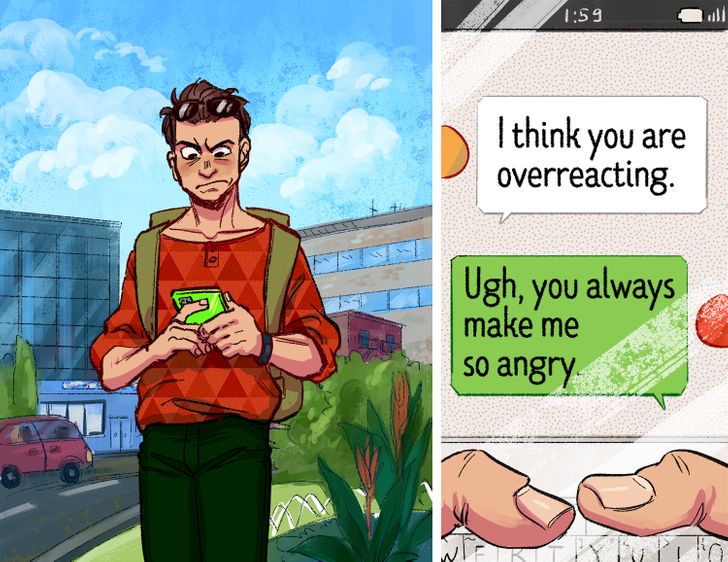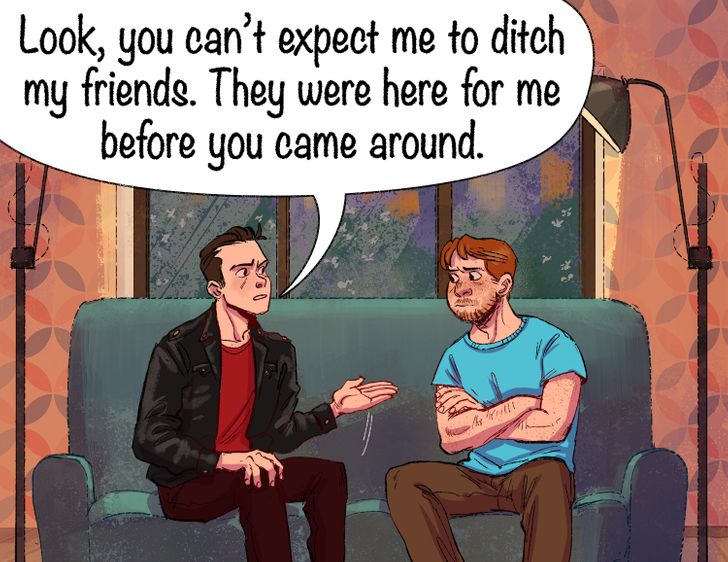Being overprotective sometimes equates to possessiveness, and both can be very damaging. A partner often acts this way out of fear of losing the person they are with. They drown in their insecurities and because of this, they are unable to show their unconditional trust in their partner.
That is why they want to be with them all the time and know their every move 24 hours a day, 7 days a week. We want to warn you of 4 signs that your partner is overprotective and 3 ways to try to resolve this behavior.
Signs Of An Overprotective Partner
Sign 1: They Express Their Deep Love Very Early

Instead of waiting to see where the relationship goes, a controlling person will profess their deep love from the beginning. Not only that but you will be pressured to make the same statement of commitment.
They will likely flatter you, tell you how you make their lives so much better, and force you to try and feel the same way. This is their effort to tie you up from the start, so they know that you are in an exclusive and dedicated relationship.
Sign 2: They Are Jealous And Interrogate You About Everything

They believe that the entire population is in love with you and that you could be flirting with everyone. They are insecure and make it appear that their actions are responsible for their feelings.
This is why they are always asking questions about where you were, who you were with, and what you were talking about. The moment they hear you talking about an ex or someone they consider a rival, they get mad and create a great scene.
Sign 3: They Try To Cut You Off From Your Friends And Especially Those Of The Opposite Sex

They don’t want you to hang out with friends, as they want to be the focal point of your entire life. They don’t understand that you have a life away from them and they try to isolate you from your friends.
Not only that, but they can make you feel guilty for leaving them alone and choosing to hang out with your friends.
They make you feel like an inconsiderate partner who doesn’t care as much about your boyfriend/girlfriend as you should.
READ RELATED: An Indian Illustrator Shows What It’s Like to Have a Girlfriend
Sign 4: They Blame You For Their Negative Feelings And Actions

When you fight and get angry easily, they blame you for their feelings. Instead of saying “I’m angry,” they will say, “You make me very angry.” They will masterfully twist things so they are never blamed, but you are the bad person who always looks down on them.
Even if they make a mistake outside of their relationship, they will find someone else to blame for their bad behavior.
Ways to Deal with an Overprotective Partner
Solution 1: Stand Your Ground And Set Your Rules

Once you understand your partner’s behavior, you can have an honest conversation and set your rules. You are willing to make some compromises, but not at the expense of your own happiness.
For example, it is not fair for your partner to ask you to stay away from your friends. You have to let them know that they too will have to commit and accept some of the things you want to keep doing.
Solution 2: Introduce Them To Your Circle Of Friends

If your partner is jealous of your friends of the opposite sex and the rest of your friends, you can always take them with you. They will see that everyone is very respectful to you and that no one is flirting with you.
And if you have very little free time in your life, you can balance your relationship with your friends from time to time. You also show them that you have nothing to hide and that their friends are also your friends if they want to get closer to them.
Solution 3: Do Some Reverse Psychology

Doing what they are doing to you can work very well with your overprotective partner. If, for example, they get jealous of your friends, you can do the same after they leave with their friends.
They are likely to defend themselves and reassure you about their decent behavior. In this way, you will make them feel how their overprotection affects you and they will see that they need to change.
Have you ever been in an overprotective/obsessive relationship? How did you respond to this and did your partner understand the wrong behavior and improve it?
Source: crfatsides






